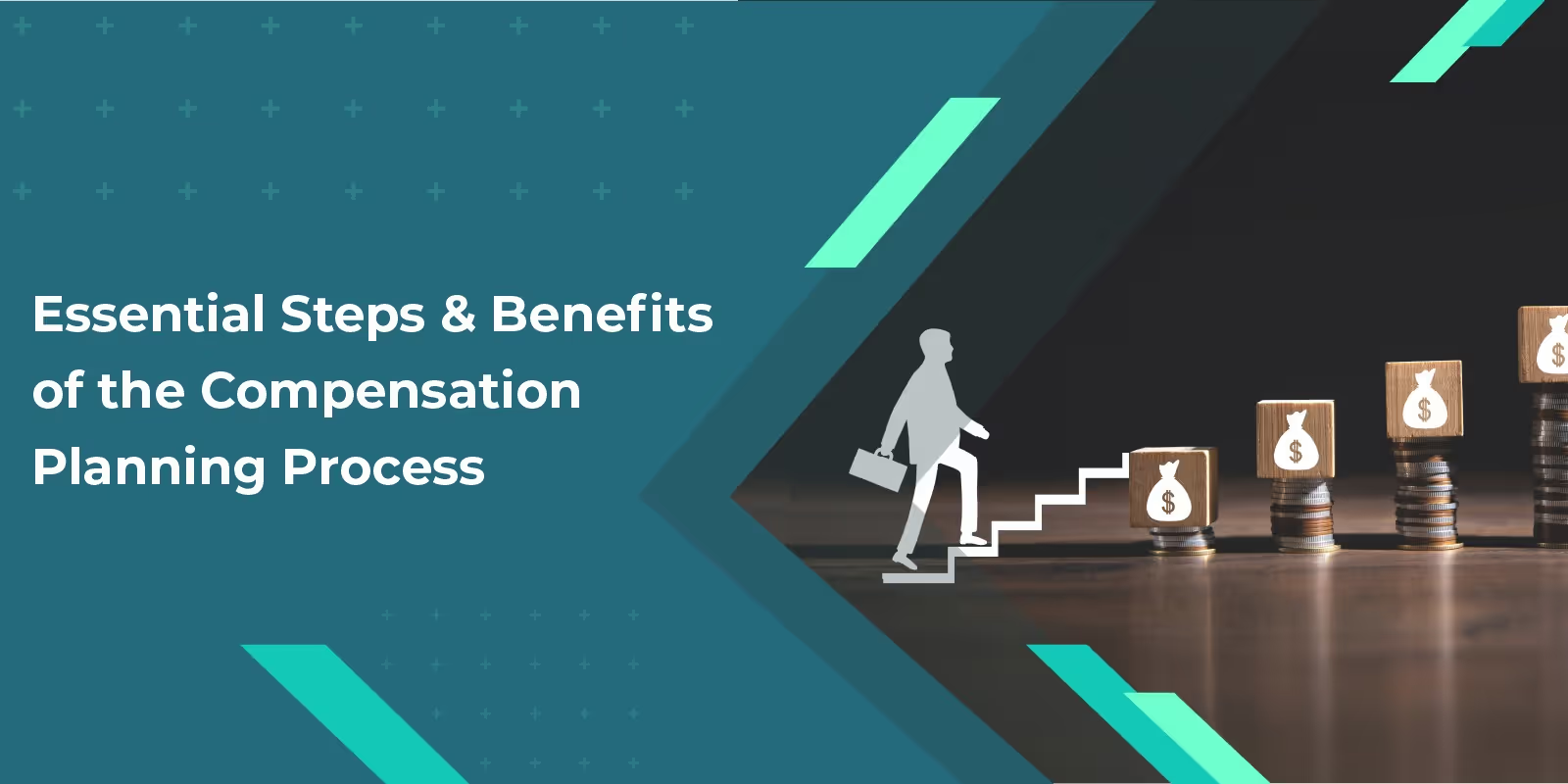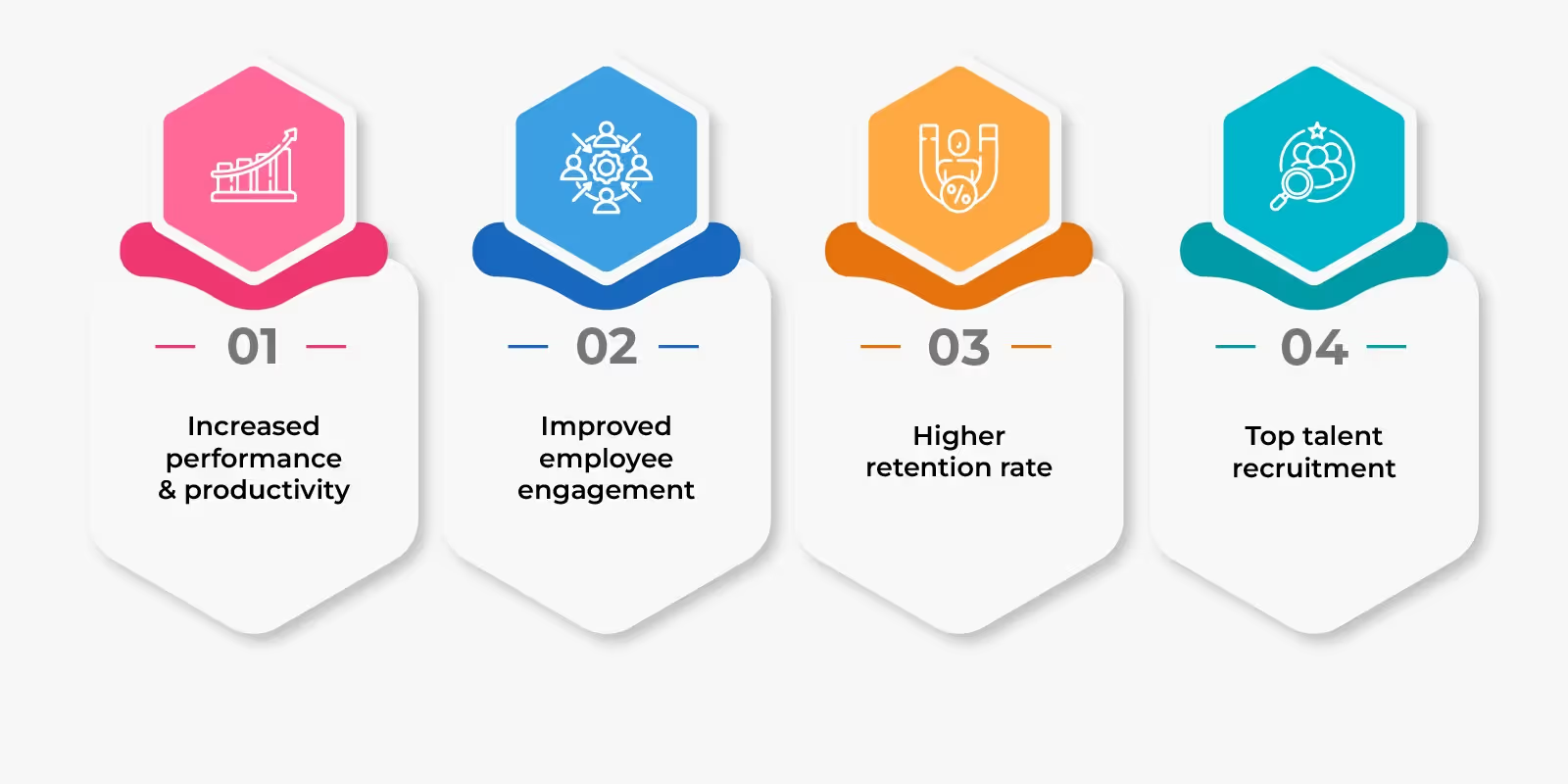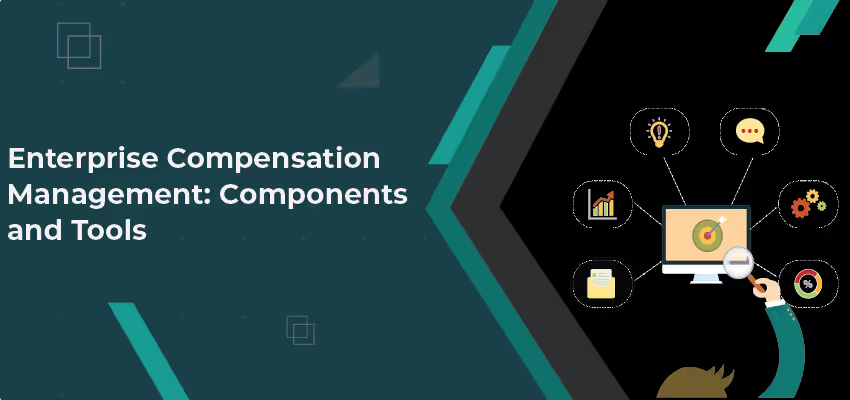
Blog
Essential Steps and Benefits of the Compensation Planning Process
July 30, 2024


Key Insights
73% of employers think their employees are paid fairly, but only 36% of employees agree. That's a HUGE gap!
Imagine how that makes employees feel – undervalued and underpaid. Why the dissatisfaction? It often boils down to convoluted pay structures, unfair practices, and a general lack of transparency.
Well, guess what? A big part of that is how you pay and treat your employees. Compensation planning isn't just about handing out paychecks. It's about showing your team that you value, respect, and want them to stay.
When you get it right, you're not just an employer – you're your team’s hero!
Let's explain how you can set up a solid compensation structure to build an unstoppable team.
What is Compensation Planning?
Compensation planning is basically creating a detailed roadmap for how much you're going to pay your employees and what other goodies (like benefits) you'll offer them.
You look at what people in similar roles are making (market trends), what the job actually involves (responsibilities), and what your company can afford (budget) to figure out the best pay and benefits possible.
Why compensation planning is important?
Compensation planning is a big deal for any organization!
When employees feel they're getting a fair deal for their hard work, they're happier, more motivated, and way more productive. Two-way gain – better job satisfaction means less turnover, and most importantly no one just up and quitting out of the blue.

#1 Increased performance & productivity
Happy employees are productive employees! When people feel valued, they work harder and smarter.
#2 Improved employee engagement
Imagine your team feeling like they're part of something bigger. That's what good compensation does! It makes people excited to come to work.
#3 Higher retention rate
People want to stay in a place where they're treated well. Fair pay and benefits keep your star players on your team.
#4 Top talent recruitment
Word gets around about great workplaces. Good compensation helps you attract the best and brightest to join your crew.
What are the different types of compensation?
If you're in the middle of the compensation process, it's essential to understand the basics. Let's break down compensation into two main buckets:

Direct Compensation
Direct compensation is the straightforward payment to employees for their work, including salaries, wages, bonuses, and commissions. It's the tangible cash rewards that make up their regular income.
Indirect Compensation
Indirect compensation includes all the extra benefits and perks that come with the job but aren’t part of the regular paycheck. Think health insurance, retirement plans, paid time off, professional development opportunities, and work-life balance perks like flexible hours and remote work options.
There's always room for improvement when it comes to compensation planning. Your compensation plan should be the envy of the industry! It's time to level up your compensation processes.
Check out this article “15 Sales Compensation Benchmarks to Use”. Trust me, your team will thank you!
What are the steps in compensation planning?
Compensation planning is a big job, but creating a pay structure that attracts and retains top talent while fitting your company's overall goals is worth it.

1. Define Your Compensation Philosophy
Your compensation philosophy is your company's belief about how much to pay people and why. Is it about paying top dollar to attract the best or rewarding long-term loyalty?
2. Market Research
Market research is super essential. Look at what other companies in your industry are paying their people. This helps you stay competitive and attract top talent.
3. Analyze Internally
Take a look at your team. Who's making what? Are there any pay gaps or inconsistencies? Understand your current pay structure thoroughly, in and out!
4. Align Pay with Goals
Your compensation plan should fit your company's goals. Are you trying to grow fast? Maybe you need to offer incentives for sales. Or maybe you’re focused on employee retention, so you need competitive benefits.

5. Create Salary Ranges
The salary ranges for different jobs. How much should a junior accountant make compared to a senior one? This is where you create a clear pay structure.
6. Budget for Payday
You need to figure out how much you can spend on salaries and benefits and run the organization smoothly without any financial hurdles
7. Keep an Eye on Things
Keep an eye on market rates, employee satisfaction, and your budget. You might need to make changes as your company grows and the job market shifts.
Compensation Planning on a Budget
Compensation planning on a tight budget? You want to keep your employees happy and motivated without breaking the bank. It's all about finding that sweet spot where you can offer competitive pay and benefits while still hitting your financial goals.
Quick Tip for Budget-Friendly Compensation
Leverage incentive compensation management automation tools to streamline processes, reduce errors, boost efficiency, and cut costs. By automating tasks like calculation and payout, you can free up valuable time for strategic initiatives and improve overall compensation accuracy and transparency.
Kennect makes incentive compensation a breeze. Forget the hassle of spreadsheets and manual calculations. We handle it all for you, end to end!
Book a demo today!
Perks of a Strong Compensation Plan
It Strengthens Your People-First Culture
A compensation plan that's fair and equitable shows your employees that you put people first. It tells your employees, "We see you, we appreciate you, and we want you to thrive.
It Combats Discrimination
A well-designed compensation plan helps ensure that everyone is paid fairly, regardless of their gender, race, or any other protected characteristic. It's about creating a level playing field!
It Helps Retain Your People
A strong compensation plan shows your employees that you care about them and that you're willing to invest in their future. This makes them less likely to look for greener pastures.
It Improves Motivation
It makes people feel like their work matters and that they're being recognized for their efforts. Who wouldn't want to go the extra mile for that, right?
Conclusion
Building a killer compensation plan isn't rocket science, but it does take a bit of planning. By following these steps, you're well on your way to creating a system that makes your team jump for joy. Remember, though, every company is different, so don't be afraid to mix things up and add your special sauce.
At the end of the day, a sweet compensation plan is like giving your team a big, juicy carrot. It keeps them motivated, happy, and sticking around for the long haul. So go forth and create something amazing!
Remember, a well-structured compensation plan is an investment in your company's future.
So, roll up your sleeves, crunch some numbers, and get ready to reap the rewards of a happy, productive workforce.
ReKennect : Stay ahead of the curve!
Subscribe to our bi-weekly newsletter packed with latest trends and insights on incentives.
Thank you! Your submission has been received!
Oops! Something went wrong while submitting the form.
Your data is in safe hands. Check out our Privacy policy for more info




.avif)










